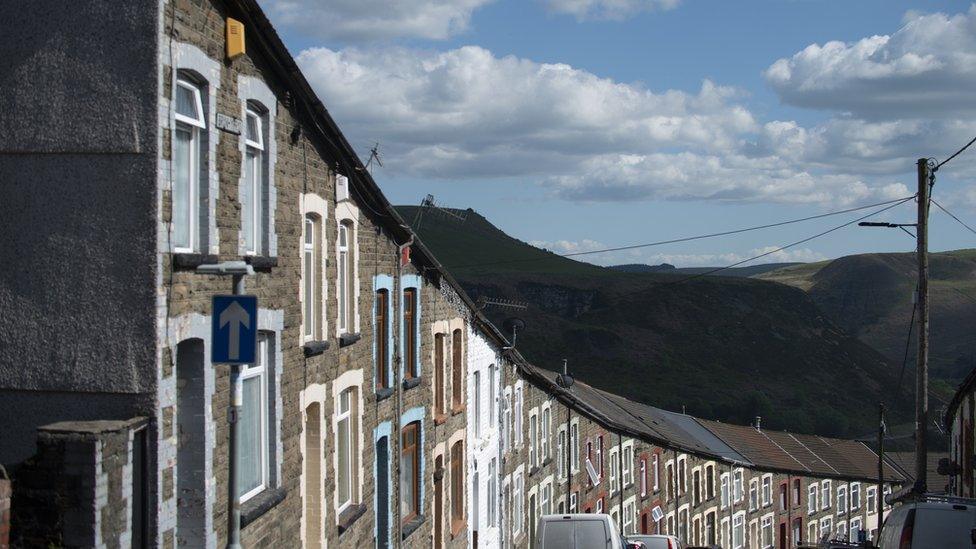Covid: Rebuilding Wales' NHS 'could be bigger challenge than pandemic'
- Published
Christine Evans says she was told she would have to pay around £15,000 for private treatment
Rebuilding the NHS after Covid could be a bigger challenge than the pandemic itself, leading doctors have said.
Surgeons say a "radical rethink" of the way hospitals work is needed, while doctors said tackling backlogs would be a "huge challenge" for exhausted staff.
Meanwhile, cancer charities fear the disruption will lead to a surge in deaths, particularly in Wales.
They all agree getting the NHS back on its feet will be the biggest challenge faced by an incoming Welsh government.
Amid these warnings, academics said difficult choices would have to be made on where money was spent.
BBC Wales health correspondent Owain Clarke has been looking at some of the key health issues facing whoever wins the Senedd election on 6 May.
Richard Pugh, head of Macmillan Cancer Support in Wales, said places like his Rhymney hometown recorded some of Wales' highest coronavirus case rates.
Mr Pugh said that happened because "huge" inequalities already existed.
In communities like his, in Caerphilly county, Mr Pugh said "we all know each other".
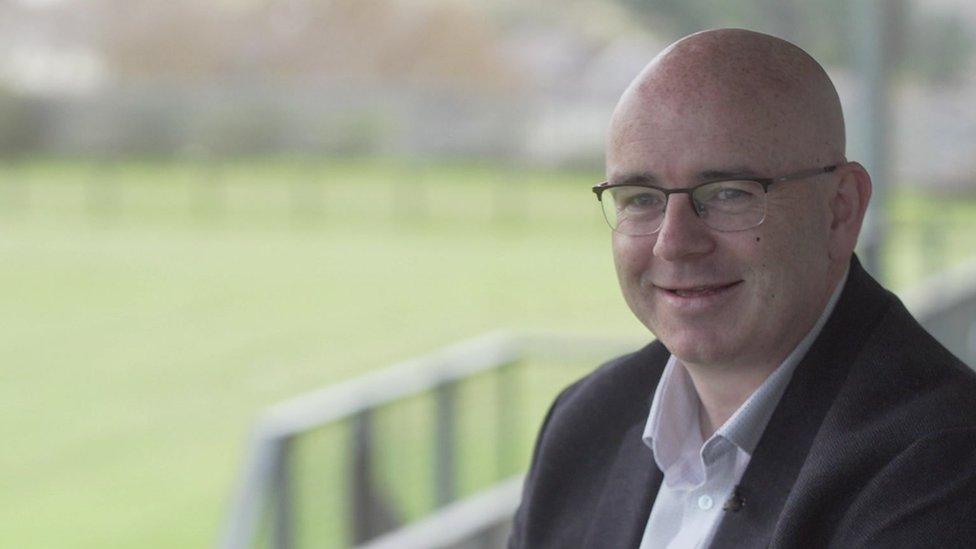
Richard Pugh said "huge" inequalities already existed
"I could point to you people's houses where sadly they've lost someone because of Covid," he said.
"When we lose one of us we lose something about the community itself."
Mr Pugh has lived in the town all of his life.
"Unfortunately we're top of the wrong leagues all the time, for example diabetes and cancer," he said.
"Here and in the other coalfield areas we have been hit the hardest and are still being hit the hardest.
"Health inequalities in this community are huge."
That problem remained unsolved when the pandemic "came on top of that".
"We've got to look at ourselves about that," Mr Pugh said.
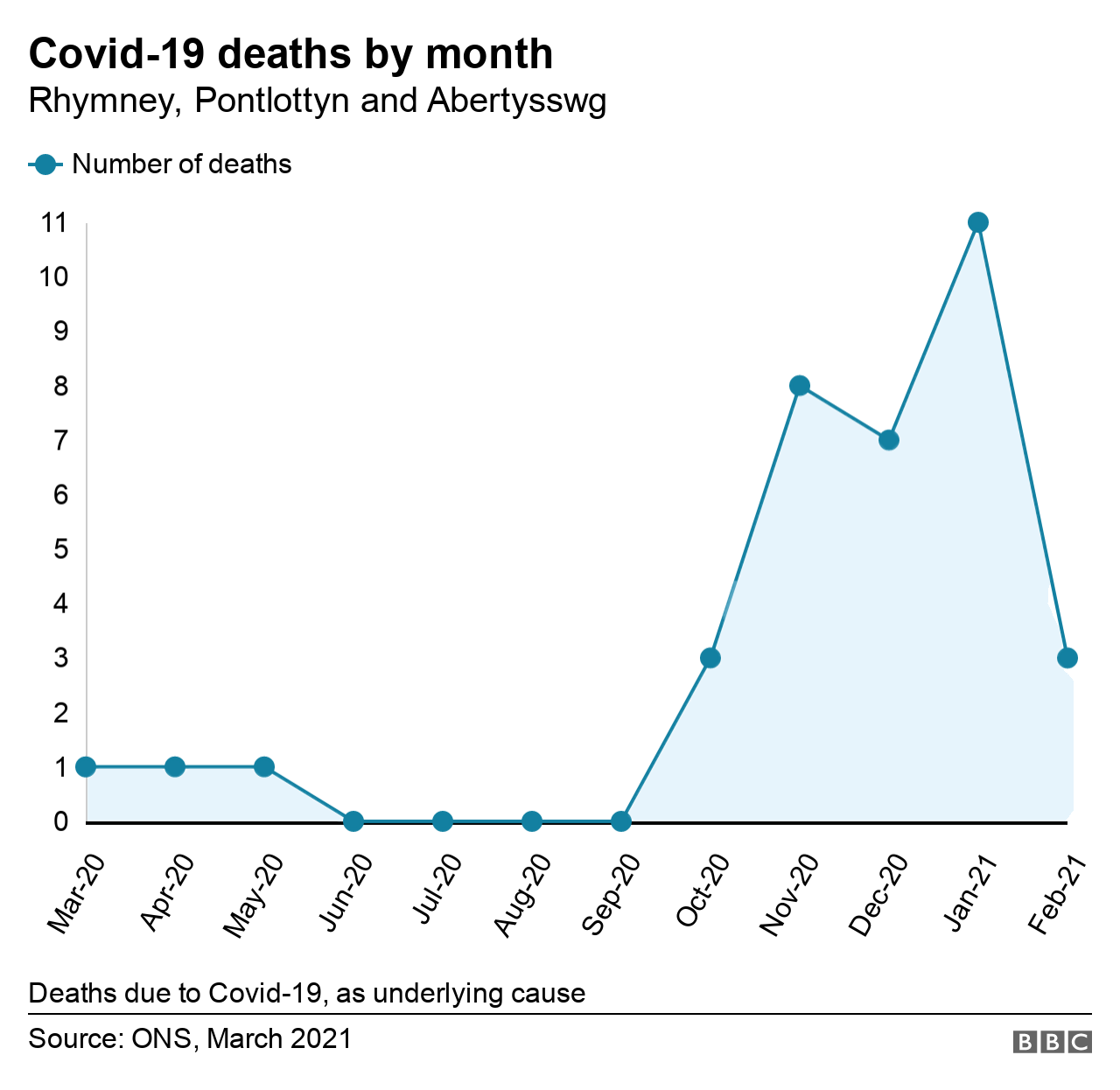
Covid in the Rhymney area - in figures
There have been more than 900 positive tests for Covid in the area, which also covers Pontlottyn and Abertysswg
The case rate is the highest in Caerphilly county and the 31st highest of all communities in Wales over the course of the pandemic
There have been 35 deaths due to Covid - 32 of them in the devastating second wave of the pandemic over the winter
Its mortality rate over the pandemic is 394.1 deaths per 100,000 people - the 29th highest of communities of this size in Wales

'I can barely walk 30 yards. My pain levels are at nine'
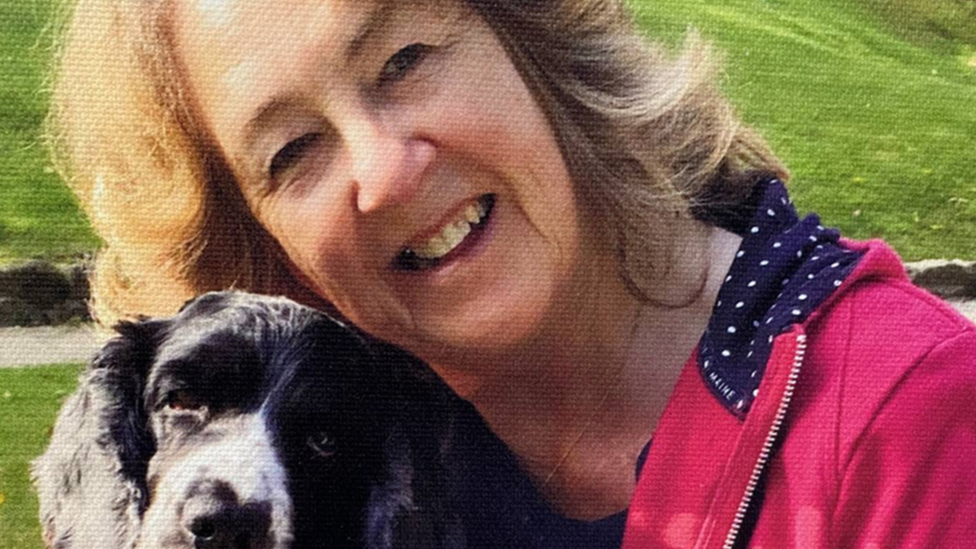
Christine Evans has been waiting for 15 months for treatment for her arthritis
Waiting lists for other NHS treatments have grown massively because of the priority given to coronavirus.
Arthritis patient Christine Evans has been on an NHS waiting list for 15 months.
The 67-year-old said the condition of her right knee had left her "barely [able to] walk 30 yards".
Ms Evans, who works in healthcare, said she was thinking of going private, which would cost about £15,000.
She said: "When I went to see the consultant, I would have said on a scale of one to 10 my pain level was around about six or seven.
"I was able to walk perhaps 100 yards, which is not too bad.
"Now we're 15 months down the line and I can barely walk 30 yards. And my pain levels are ranking up around about a nine."
Ms Evans, from Llanharry, in Rhondda Cynon Taf, said it was "pretty awful".
"You get up in the morning, you think: 'Oh, can I face today?'"
She said she felt for consultants.
"They're normally able to step up to the plate and help us, and they just can't," she said.
'Absolutely exhausted'
Helen Whyley, director of the Royal College of Nursing in Wales, urged those needing care who were "not wanting to bother the NHS" to seek advice from health practitioners such as their GP.
"We know there are challenges about reopening services, but we also need to understand and make sure that we've got everyone who needs care at least on the list waiting for it, so that we can put those plans together," she said.
After going into the pandemic with a shortage of nurses, then adding extra services such as the vaccination programme, she said there was a "massive challenge" ahead for staff.
"Many of them are absolutely exhausted, so our current workforce also needs to get its breath back in addition to get going on the things that we always used to do," she said.
"The next Welsh government needs to be really strong, really brave and take the opportunity to look at the whole system."
Mountain Ash GP Dr Kamila Hawthorne said the backlog facing the NHS was a "huge problem".
"We're going to need to give much clearer instructions to patients as to what to do if, while they're waiting, anything else happens which might mean that their condition is getting worse," she told BBC Radio Wales Breakfast.
"It's very worrying really that conditions that in the past you knew would be seen as secondary care within, say eight weeks' time, now might take easily a year."

In January more 500,000 people in Wales were on waiting lists.
There has been an eight-fold increase in those waiting longer than nine months.
The backlog could take years to clear.
Where next for the NHS?
The Royal College of Surgeons' Wales director, Richard Johnson, said the NHS needed a "radical rethink".
"We should be developing Covid-light sites on a regional basis," he said.
"So you've got hospitals, where there's no emergency patients going in there, dedicated to treating the backlog of patients.
"We know from experience it's very easy to turn services off, but it's far more difficult to bring them back online again."
The new government is likely to be under pressure to bring down waiting lists fast.
The Royal College of Physicians' Olwen Williams said more doctors were needed and those already in place needed to "refresh and renew themselves".
"We have come to a point in the pandemic when everyone's taking a deep breath and thinking 'what's next'." she said.
Recruiting more staff will not be enough, according to Dr Williams.
She said: "A lot of us really do believe that we have to look at really doing things that have got value, and leaving aside some of the things we have done in the past, and think, 'does this person really need to be seen by 10 different clinicians, could they not be seen by one?'."
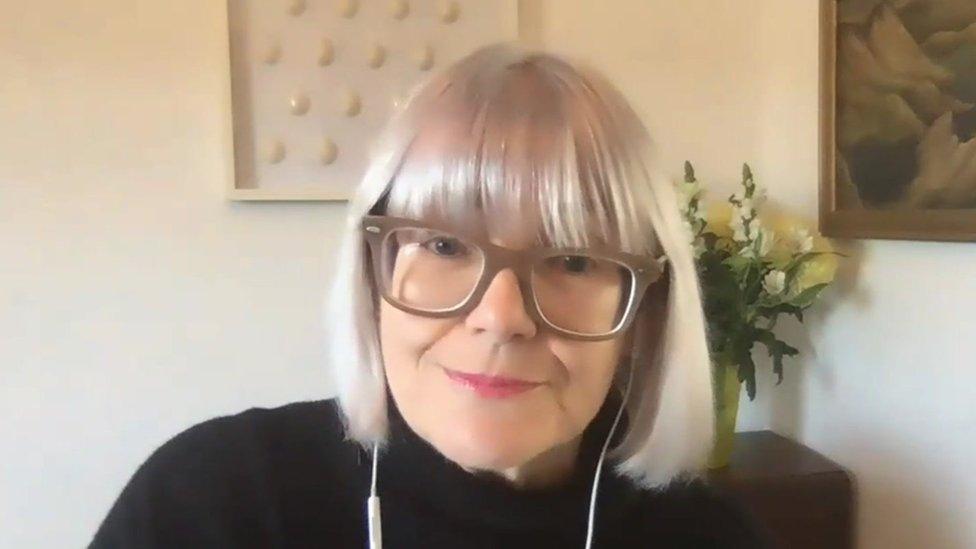
Olwen Williams said more doctors were needed and those already in place needed to "refresh and renew themselves"
According to Cardiff University's Wales Governance Centre, the Welsh government gave NHS Wales an extra £1.4bn in the last financial year to deal with the pandemic.
That was down to extra money that came to Wales due to increased NHS spending in England.
But much more funding is likely to be needed to help the NHS recover, external.
"You are looking at an extremely challenging picture for the next Welsh government," said Guto Ifan, a research associate at the centre.
There were the direct costs of Covid, test and trace, and potentially re-vaccinations.
"Also the indirect costs of Covid-19 are probably more substantial beyond this year," Mr Ifan said.
"If NHS productivity doesn't recover because of social distancing requirements and heightened infection control, that means the NHS can deliver less care for the resources it's given."
Where will the cash come from?
The new Welsh government will have about a billion pounds unallocated for 2021-22.
This is partly because Wales sourced personal protective equipment and introduced Test, Track and Protect more cheaply than in England.
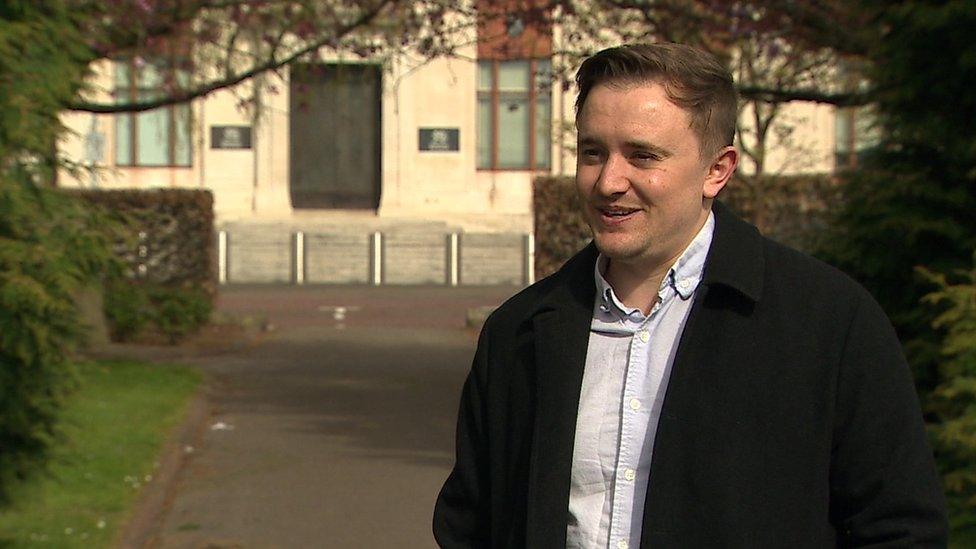
Guto Ifan said it was an "extremely challenging picture" for the next Welsh government
"Whichever party or parties form the next Welsh government, they'll all be hoping and wishing the UK government changes course on its spending plans," said Mr Ifan.
"With that money carried forward from last year to this year,the Welsh government will be in a position to meet NHS funding pressures this year.
"But it's next year when those funding pressures really start to bite in the context of the UK government's current plans."
What do Wales' political parties say they would do to tackle the NHS's challenges?
Welsh Labour said it would help services recover by installing "the biggest catch-up programme our NHS has ever seen".
A £1bn NHS recovery plan, it said, would be launched "on day one".
Welsh Conservative leader Andrew RT Davies said coronavirus had "devastated our communities" and "exposed our fragility".
He said his party would build "better hospitals".
Plaid Cymru said NHS waiting times were "unacceptably long" before the pandemic.
"Radical and robust action is needed in order to ensure the service is resourced and has the capacity to provide healthcare to the thousands of people waiting," a spokesman said.
The Welsh Liberal Democrats said they would establish a taskforce to address health inequalities and improve public health by "promoting healthy living and good life choices".

'Fear and respect'
A spike in cancer cases could be on the way, Macmillan Cancer Support's Richard Pugh fears.
He said people had not sought treatment during the pandemic because of worries about protecting the NHS.
He admitted he was "terrified" by the prospect of more cases.
"More and more people are getting diagnosed, and later and younger as well," Mr Pugh said.
"So it's not your traditional over-65s, it's those people unfortunately that have been sat on symptoms in their house, the younger ones who we would have saved."
They had not got help because of "fear and respect", he said.
"The fear was they were frightened of catching Covid, and the respect was: 'I see the NHS on the TV every day, I don't want to burden them with this little bump or this mole'."
The charity estimates there are now more than 3,500 missing cancer diagnoses in Wales.
- Published28 May 2024

- Published7 April 2021
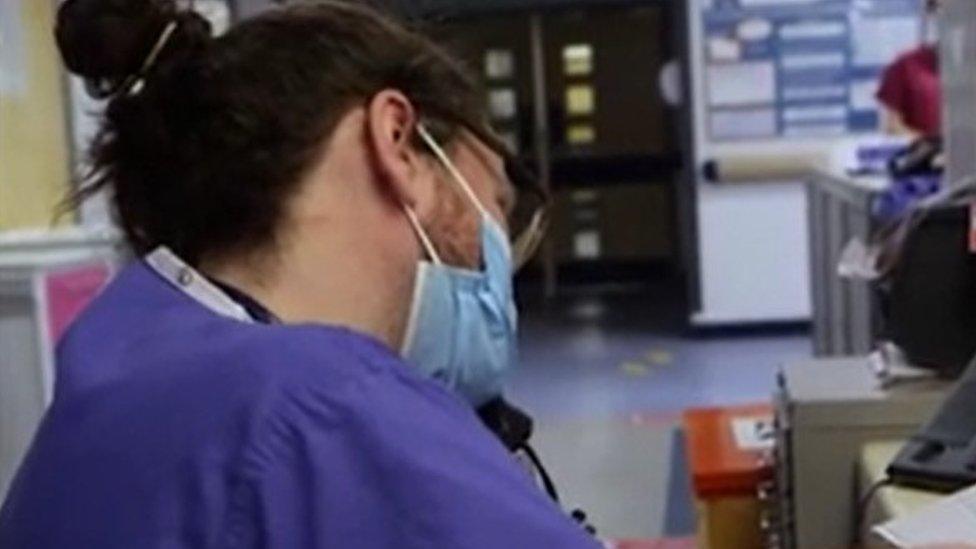
- Published14 February 2021
